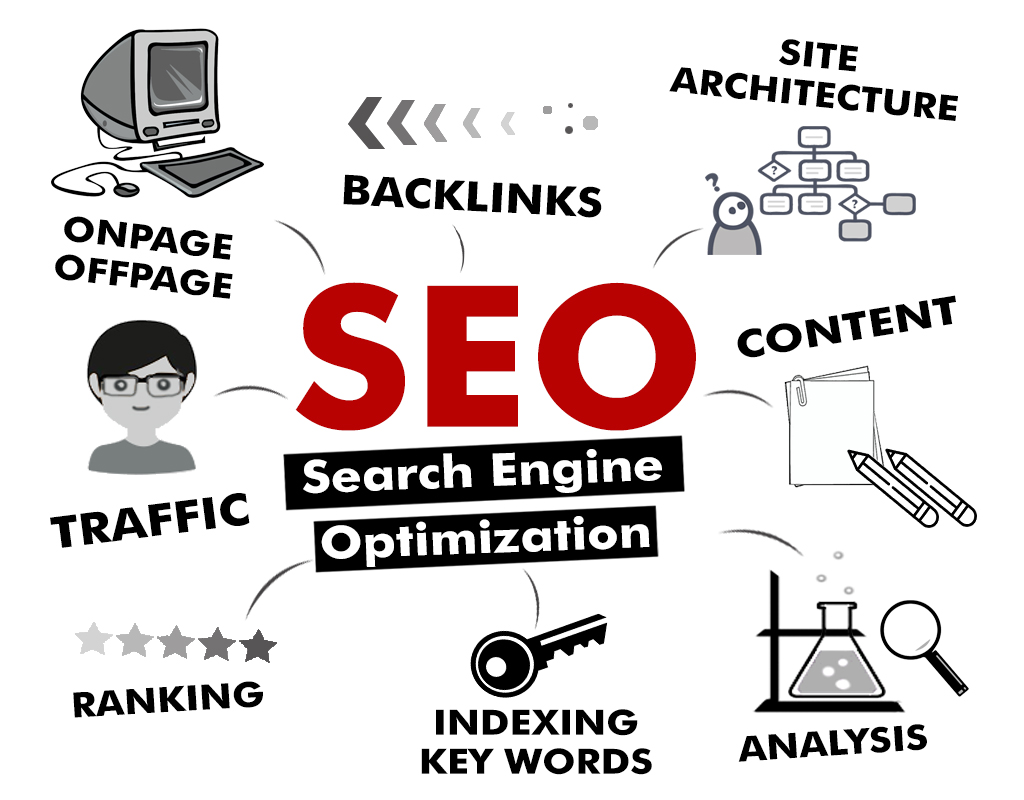The internet provides us with countless possibilities for e-commerce businesses. It is important for your website to have a good ranking in search pages. There’s no doubt that ranking higher than your competitor in Google is a must. SEO has the highest Return on Investment (ROI) of any e-commerce marketing campaign.
Whether you are launching your new e-commerce website or improving your existing website, these SEO tips will be your stepping stone for ranking in local search pages and getting more organic traffic.
In-depth Research and Keyword Analysis
Before you start any SEO activities, you need to be ready with in-depth competitor research and keywords as well. As targeting the wrong keyword can hamper your campaign by generating a low amount of traffic followed by less number of conversions or sales.
Areas you need to focus while choosing your keywords:
- Select keywords for your homepage and product pages – while optimizing the most important pages of your website, don’t forget to consider keyword relevancy, search volume, competition, and ranking difficulty.
- Choose relevant and exact keywords for blog topics – Blog content can assist in ranking for e-commerce businesses. Focusing on long-tail keywords and the final use of it in the blog are always useful.
- Skip keyword cannibalization- In case of On Page SEO avoid the use of same keywords for targeting multiple web pages. When multiple pages of the same website try to rank for the same keyword it is not worthy from the SEO perspective.
After completing your keyword research it’s time to focus on your competitor’s website
- Find which keywords your competitors are working on!
- The other important thing is to build a list of the places from where your competitors are getting their inbound links.
- Check out the navigation or site architecture of your competitors.
Identify the areas to be improved for your Website
- Check out the site’s technical errors like redirection of any 404 pages, changing 302 redirects to 301 redirects or identifying duplicate content and updating the content pages with quality content and Meta titles and description.
- Determine the website’s loading speed.
On-Page Optimization helps to rank better
On-page optimization can help your web pages to rank better. What you need to focus on
- Site Structure
- Internal Linking
- Usability or user experience
- Mobile responsive
- Rich Snippets
- Integration of Social Media
Addition of Blog Content
An enrich blog on your website is one of the ideal ways to rank for those keywords which you aren’t targeting with the main pages. With a blog, optimization becomes easier. Your blog posts need to be of high quality and reader-friendly. If each of your posts is keyword stuffed or of low quality, your readers will not read those and Google might penalize your website for keyword stuffing.
Link Building
Getting quality inbound links is a bit difficult when it comes to link building. If low-quality sites are linking to your site Google will penalize it and the referral traffic won’t bring positivity for your business. Always remember to avoid the sites that are full of ads and contain poorly written, keyword stuffed content; instead, focus on earning links from high domain authority sites that offer some value to them in exchange for a link.
Before you start working for your campaign to keep one thing in mind that SEO isn’t a one-time thing, it requires a lot of time and dedication. So plan your SEO strategy now and hope these tips turn to be useful for your business.

